Conversations on Trump’s America
Conversations on Trump’s America: Robert Reich Previews a New Era of Savage Inequality
Last fall, Robert Reich published Saving Capitalism, in which he called for a sweeping realignment of political power to counter the excesses of contemporary capitalism. A realignment has followed, but not the kind Reich had in mind.
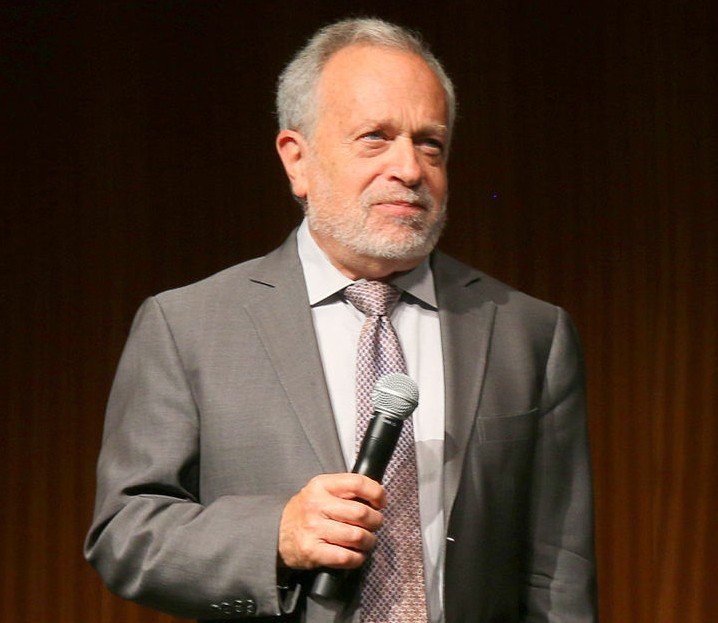
Robert Reich photo by Daniel Norton.
Last fall, Robert Reich published Saving Capitalism, in which he called for a sweeping realignment of political power to counter the excesses of contemporary capitalism. A realignment has followed, but not the kind Reich had in mind.
While most observers don’t expect Donald Trump’s stunning election to lead to greater shared prosperity, there’s little question that rampant economic inequality was critical to his success. It’s hard to imagine Trump’s ascent without the dramatic hollowing out of the American middle class over the past several decades.
Capital & Main spoke by phone with the former labor secretary about how the Trump years will affect inequality and the working class voters who were so instrumental in the business mogul’s rise to political power.
About This Series
Capital & Main: What will happen to economic inequality under Donald Trump?
Robert Reich: It will worsen for a number of reasons. First, Trump and the Republican Congress will pass a huge tax cut for the very wealthy, larger than the Reagan or George W. Bush tax cuts. That would mean large deficits. Those deficits will require, at some point, cuts in public spending.
Second, Trump and [House Speaker] Paul Ryan are already talking about privatizing Medicare and rolling back or eliminating the Affordable Care Act. Trump says he wants to maintain the portion of the Affordable Care Act that requires insurers to provide insurance to people with preexisting conditions, but there’s no requirement that insurers charge an affordable rate to people with preexisting conditions. My fear is that they won’t. On paper, they will be complying with the letter of the law in terms of what Trump says he wants, but, in reality, people with preexisting conditions will pay enormous premiums, giant copayments and deductibles.
Third, I have every reason to believe that the person Donald Trump names to the Supreme Court will be a right-wing conservative who has no interest in reversing Citizens United — in fact, if anything will probably eviscerate what remains of campaign finance limits and may do terrible damage to low-income and poor people through a variety of decisions.
What was the most decisive factor that explains why millions of Americans voted against their own economic self-interest — again?
The resentment [against] the ruling class has been building for 30 years, and that resentment is based on two related things. First, the majority of Americans have been on a downward escalator for 30 years. Second, Republicans have for years stoked the fires of racism, and they did it long before the middle class began to shrink and the working class began losing good jobs, but the crisis of the American working class added to the potency of Republican race-baiting. Obviously, that applies not just to African Americans but to Muslims and Latinos. It was that poisonous combination of economic stress and appeals to racism, all wrapped up in a kind of right-wing populist garb, that won it for the Republicans. Hillary Clinton did not provide a convincing message of what she was going to do to turn the economy around for most people, and she seemed to be the embodiment of the ruling class.
Will the white working-class voters who were crucial to Trump’s victory see any real economic benefits from his administration?
No. They may see some initial Keynesian benefit from a big infrastructure project if that’s, in fact, what Trump manages to do, combined with an increase in military spending and a tax cut. That all will stimulate the economy much the same way Ronald Reagan’s military Keynesianism stimulated the economy in the 1980s, but it will be short term. It won’t change, fundamentally, anything and the white working class, along with the poor and the lower middle class — white, black and Latino — will continue to be on the downward escalator they have been on, but it will be worse.
What do you think a clearly weakened American labor movement can do at this moment to oppose a conservative free-market economic agenda?
I still think it’s a great time for the labor movement, particularly with regard to the large retail chains, hospitals, restaurant chains, hotel chains. A very substantial group of low-paid, mostly women, and significantly black and Latino workers, need a voice. They don’t have to compete with foreign low-wage workers and could really gain ground if they united. This is exactly the right time. I think organized labor might be moved to put some pressure on Congress to make sure that the infrastructure plan that Trump has advised is large enough, respects labor laws, such as Davis-Bacon, really does have the multiplier effect on jobs that it should have. Finally, I think that labor has some new ground to stand on in terms of such things as trade policy where there’s lot of room to shape new consensus around trade that’s not just protectionist but enables working people who lose their jobs for whatever reason to move to a new job that pays as much as the job they lost.
Would you counsel progressives, liberals, Democrats to join with Trump in trying to repeal or alter trade agreements or to pass a major infrastructure spending bill, both of which have been major progressive priorities?
Look, I wouldn’t urge anybody to team up with Trump. I think he’s unreliable and rather awful in every way. But mainstream Republicans are not going to want to do a huge infrastructure spending program. They’re not going to want to modify or reduce the effects of free trade on average working people. If Trump provides an opening, then I’d say let’s use that opening. It doesn’t mean necessarily siding with him, because I honestly don’t believe that Trump stands for anything. I don’t think he is going to take on the Republicans in Congress.
I think when all is said and done, he’s going to do exactly what they want, because he wants to score victory. He doesn’t care about what kind of victories, he just wants to be able to show that he has a lot of wins.
How important is California to the advancement of progressive ideas in this time?
Enormously important. It has huge influence, even if Washington weren’t becoming an occupied city. California really is the largest and most important progressive beacon left in the United States. Washington and Oregon are close, physically and figuratively. My daydreams are the three states getting together and coordinating environmental policy, a minimum wage, labor policy, even perhaps a single-payer healthcare plan. I think that people are going to look to California for leadership in all these areas.
What are the one or two most important things that those concerned with economic inequality, racial inequality and climate change can do right now?
I think it’s more of an attitude than specific actions, because we don’t know what Trump is going to do first, how the Republican Congress is going to behave. But I think the attitude has got to be engaged in a much more active way than most progressives have been up till now. Many people are quite generous with their money, in terms of progressive causes. Some provide some time, but I don’t think there’s any choice any longer. I think people have to be willing to participate actively in a manner they haven’t been called upon before. I use the phrase “peaceful army of resistance,” and I do think it’s partly that at every level. I think that turning our cities into sanctuary cities and uniting against the kind of brutality we might end up seeing in the coming years with regard to undocumented workers is an important step.
Keeping progressive ideas boiling at least at the state and local level. Getting rid of the electoral college. Eliminating the kind of voter suppression we’ve seen. Being a force for democracy, in a very practical sense.
There’s much to be done. It’s hard to find any silver linings in this dark storm cloud, but if there is one, it has to do with us being awakened to the emergency we face. Not normalizing what we’re about to experience. Not telling ourselves, “Oh, this is just another president, another administration, maybe more right-wing than before, but we’ve gotten through these kinds of things.” I don’t think that’s the right attitude. I think that there’s nothing normal about what we’re about to experience. We’ve got to be peaceful warriors.
Tomorrow: A conversation with Maria Elena Durazo.

-
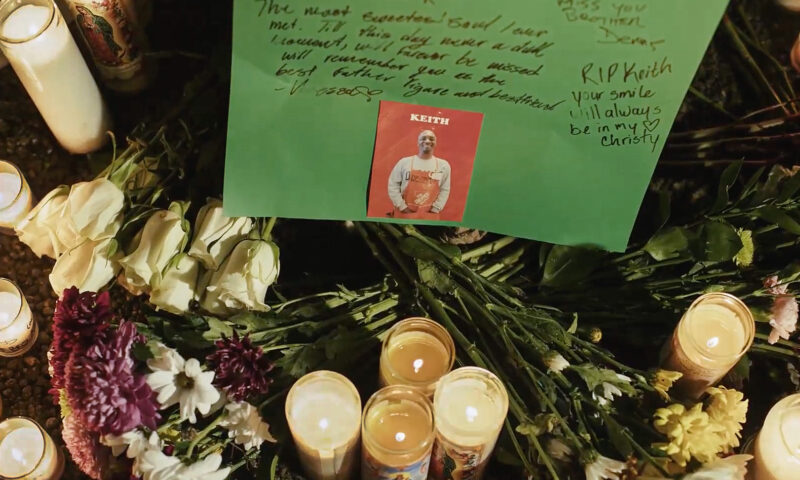
 Latest NewsJanuary 8, 2026
Latest NewsJanuary 8, 2026Why No Charges? Friends, Family of Man Killed by Off-Duty ICE Officer Ask After New Year’s Eve Shooting.
-
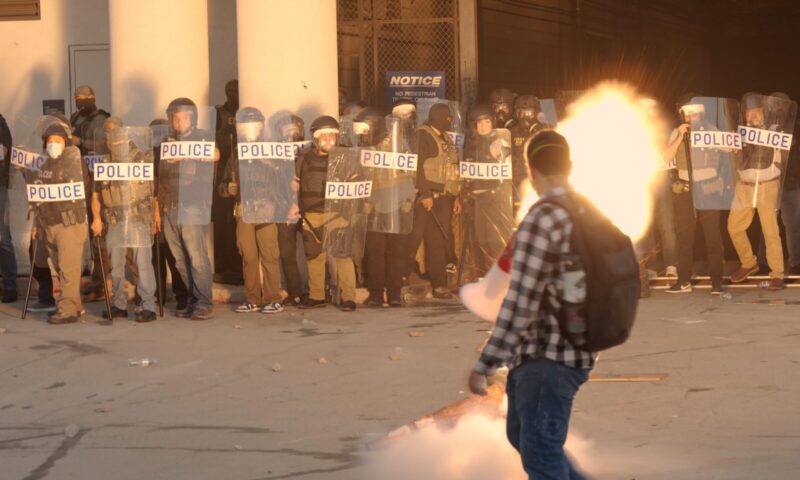
 Latest NewsDecember 30, 2025
Latest NewsDecember 30, 2025From Fire to ICE: The Year in Video
-
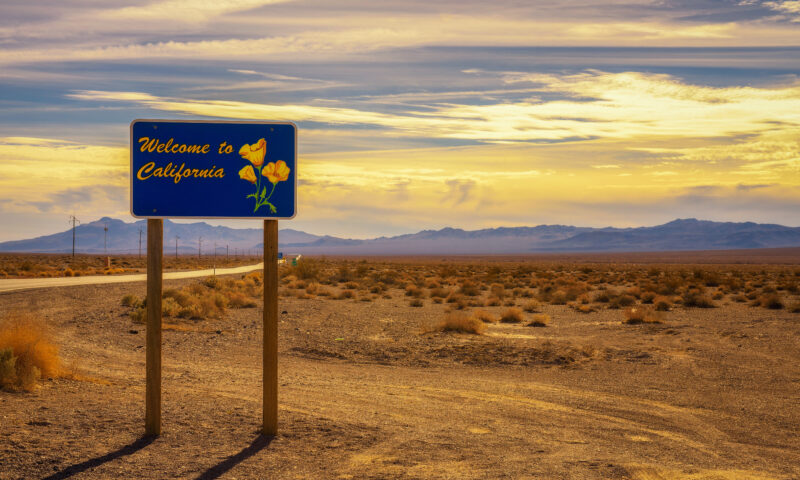
 Column - State of InequalityJanuary 1, 2026
Column - State of InequalityJanuary 1, 2026Still the Golden State?
-

 The SlickJanuary 12, 2026
The SlickJanuary 12, 2026Will an Old Pennsylvania Coal Town Get a Reboot From AI?
-
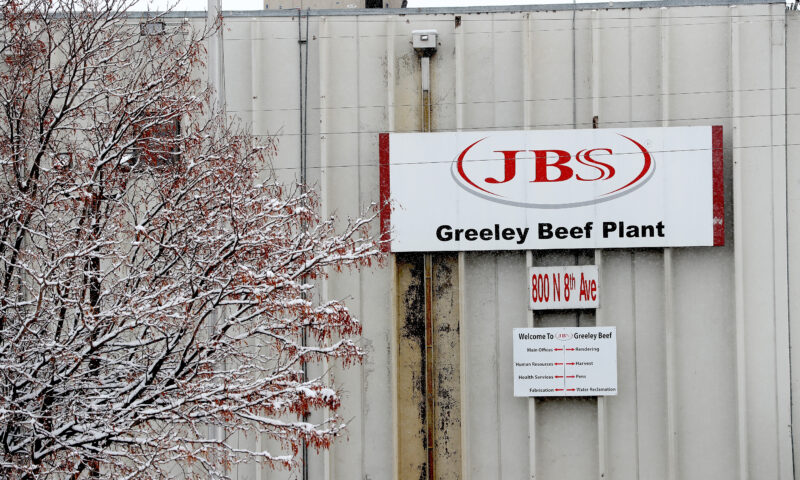
 Pain & ProfitJanuary 7, 2026
Pain & ProfitJanuary 7, 2026Trump’s Biggest Inaugural Donor Benefits from Policy Changes That Raise Worker Safety Concerns
-
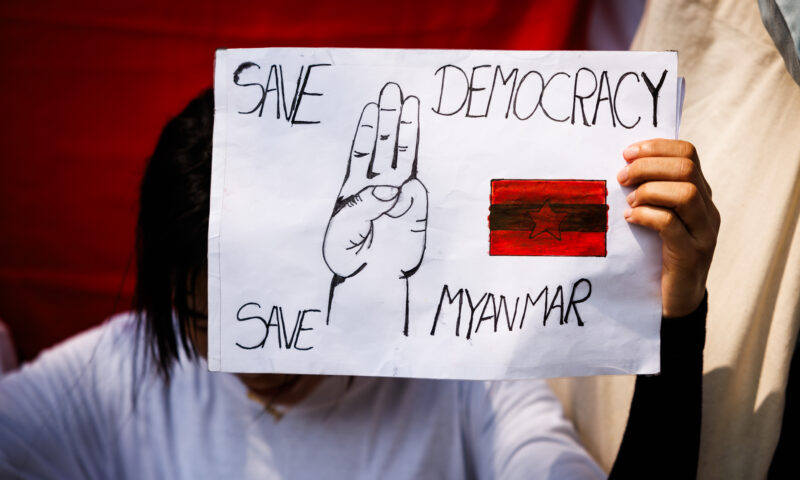
 Latest NewsJanuary 6, 2026
Latest NewsJanuary 6, 2026In a Time of Extreme Peril, Burmese Journalists Tell Stories From the Shadows
-

 Latest NewsJanuary 13, 2026
Latest NewsJanuary 13, 2026Straight Out of Project 2025: Trump’s Immigration Plan Was Clear
-

 Column - State of InequalityJanuary 8, 2026
Column - State of InequalityJanuary 8, 2026Can California’s New Immigrant Laws Help — and Hold Up in Court?

